
All News
Upcoming Events
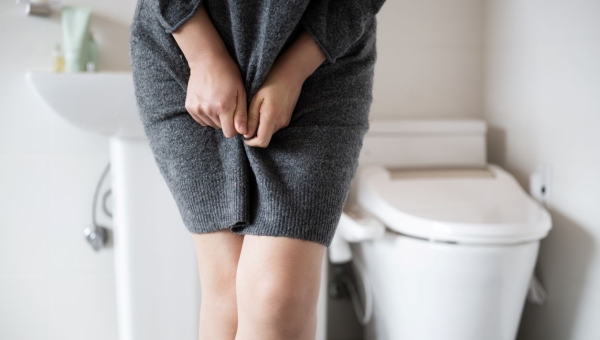
Interstitial cystitis/bladder pain syndrome (IC/BPS) causes chronic pain in the bladder, often leading to a frequent need to urinate, pain while urinating, and constant pain or tenderness in the bladder and pelvic region. IC/BPS is more common in women than men and can affect any person of any age.
In this Spanish-language ISSM Podcast episode, interviewee Roberta Gobbi Baccarim joins interviewer Estela Citrin to discuss global perspectives in sexual medicine. Their conversation explores communication in sexuality, psychological and clinical approaches, and current research trends. They highlight significant developments and interventions across Latin America, emphasizing both emotional and physical aspects of sexual well-being. The discussion also stresses the value of multidisciplinary collaboration and the ISSM’s role in promoting sexual health worldwide.
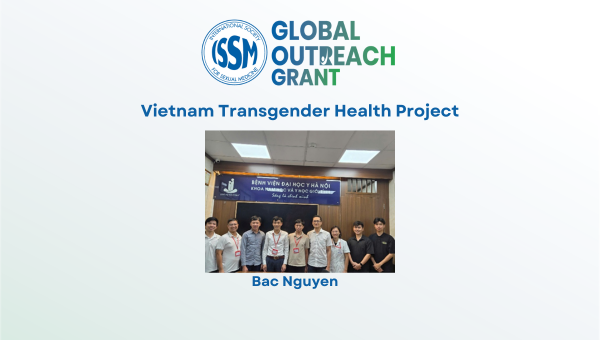
Through the ISSM Global Outreach Grant, this project empowers Vietnamese healthcare providers with essential knowledge in transgender medicine.
Using online courses, workshops, and educational tools, it improves quality of care and addresses persistent discrimination in healthcare settings.
"We are deeply honored and grateful to receive the ISSM Global Outreach Grant to support our project aimed at improving transgender care in Vietnam. This opportunity represents not only personal recognition for us at the Department of Andrology and Sexual Medicine, but also an important milestone for the medical and transgender communities in our country. This project carries deep personal and professional meaning. It reflects our commitment to inclusivity, patient-centered care, and the ethical responsibility to ensure that every individual, regardless of their gender identity, can access safe and appropriate healthcare services. We are confident that this initiative will have a meaningful and lasting impact on the transgender community in Vietnam, offering them the dignity, respect, and medical care they deserve." -Bac Nguyen
Learn more by clicking here.
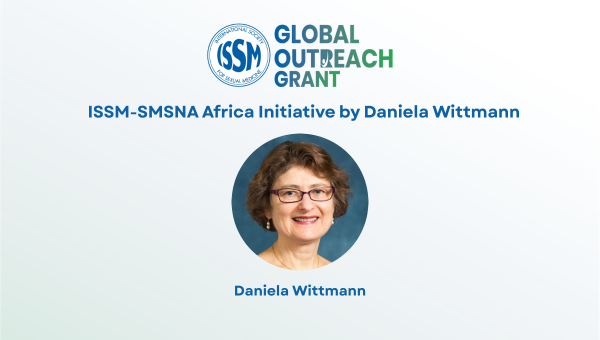
A joint program is delivering comprehensive sexual medicine and health training for oncology providers across Africa.
Building on five years of successful in-person and virtual education in Kenya and Sub-Saharan Africa, this initiative continues to expand its reach and impact, empowering healthcare professionals with vital knowledge and skills.
"Sexual health is a topic that is rarely discussed as an aspect of cancer care globally. In response to an enthusiastic invitation by a Nairobi cancer center to bring education on sexual health in 2019, our team has continued to provide increasingly in-depth education, including clinical examples discussion with attendees. Our webinars have not only had solid attendance from Sub-Saharan Africa, but the program has also had participants from other parts of Africa and other continents. Participants tell us about their plans to incorporate sexual health assessment in their oncology practice which meets our goal and the goal of ISSM to have a positive impact on the quality of life of cancer patients in Africa." -Daniela Wittmann
Learn more by clicking here.
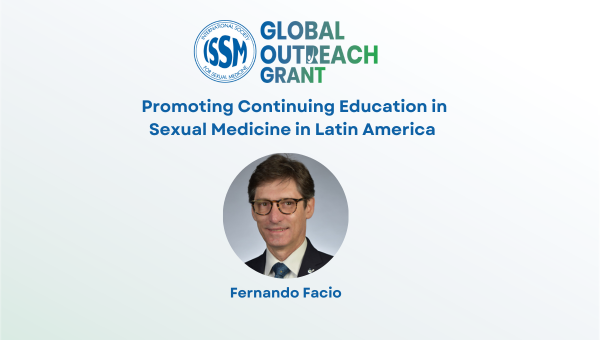
Fernando Facio is using the ISSM Global Outreach Grant to promote sexual medicine education across Latin America!
This initiative strengthens the technical and practical skills of healthcare professionals in resource-limited countries and provides accessible, expert-made audiovisual sexual health content for the general public, with a focus on adolescents.
"Working on this project with SLAMS/ ISSM (Global Outreach Grants)to promote sexual education in Latin America will be a powerful and deeply meaningful experience. Our goal is simple yet urgent: to bring clear, accessible, and science-based information about sexual health to communities that often have limited access — especially in poorer countries". -Fernando Facio
Learn more by clicking here.
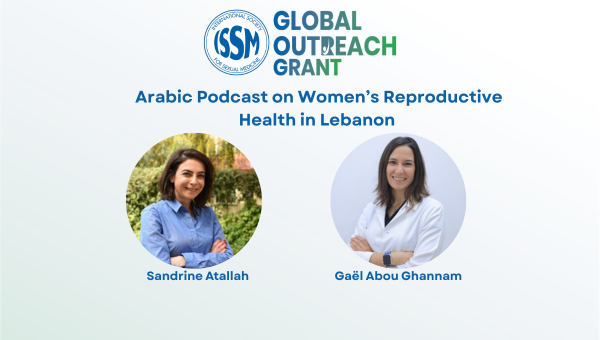
Breaking Taboos in Lebanon, One Conversation at a Time!
Through the ISSM Global Outreach Grant, Drs. Sandrine Atallah and Gaël Abou Ghannam launched the “Mech 3ayb” Arabic podcast on women’s reproductive health.
💬 5 episodes released
👀 Over 189,000 views and counting
🌍 Available on Spotify, Apple Podcasts, and YouTube
The podcast is sparking essential conversations on women’s health and helping to normalize open dialogue across the Arabic-speaking world.
"This project means a great deal to us. As Arab women physicians, we are committed to breaking the silence surrounding topics like menstruation, fertility, postpartum sexuality, menopause, and vaginismus—topics too often left unspoken. With this podcast, we aim to offer accessible, culturally sensitive, and evidence-based information to thousands of Arabic-speaking women and the healthcare providers who serve them. This grant gives us the momentum and credibility to expand our impact and help normalize these crucial conversations." -Sandrine Atallah and Gaël Abou Ghannam
🎧 Listen now by clicking here.
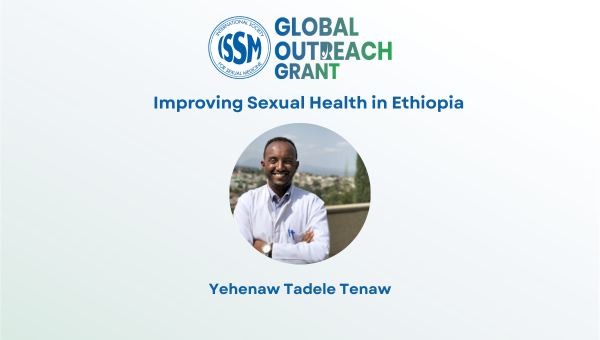
Expanding Access to Sexual Health Education in Ethiopia!
Thanks to the ISSM Global Outreach Grant, Yehenaw Tadele Tenaw and team have successfully trained 267 healthcare workers through three impactful webinars on:
1️⃣ Sexually Transmitted Infections Management
2️⃣ HIV/AIDS in Ethiopia 2025 – Prevention, Treatment, and Stigma Reduction
3️⃣ Prevention and Response to Sexual Abuse
Workshops and media campaigns are now underway, strengthening sexual health knowledge and care across Ethiopia.
"Receiving the ISSM Global Outreach Grant is a tremendous honor and a vital opportunity for me and the communities I serve in Ethiopia. This support will allow us to address the significant unmet need for comprehensive sexual health training. The project is designed to be scalable and culturally tailored, combining nationwide online seminars with in-person workshops to ensure access for frontline healthcare providers,educators, social workers, and community leaders." - Yehenaw Tadele Tenaw
Learn more about the ISSM Global Outreach Grants by clicking here.

Existing studies from the US and Scandinavia detail the sexual behavioral patterns of gay, lesbian, and bisexual men and women. In the United States, gay and bisexual individuals are more likely than heterosexuals to have high rates of unsafe sex and sexually transmitted infections (STIs), as well as higher rates of sexual coercion over their life.

Background
Premature ejaculation (PE) is a sexual dysfunction that affects roughly 5-15% of men globally, of which definitions vary, but mostly consist of:

A yeast infection is the overgrowth of the naturally occurring fungal species, candida, and can occur for a variety of reasons. Yeast infections often present in the mouth or vagina, and on occasion can grow under the foreskin of uncircumcised penises. These are quite common in women, with 3 out of 4 reporting at least one yeast infection in their lifetime, usually in women of reproductive age.
In this ISSM Podcast episode, Tanginika S. Cuascud discusses surrogate partner therapy as a specialized modality within sexual medicine. She explains how this therapy provides a safe, structured space to practice intimacy and sexual skills, particularly for individuals with sexual trauma, disability, body changes after illness or surgery, late-life virgins, and people affirming their gender. Dr. Cuascud outlines the sensate-focus–based methodology, the gradual, skills-focused process, and the benefits in building confidence, communication, and autonomy. She also highlights the importance of the triadic model involving the client, surrogate partner, and mental health professional to ensure safety and ethical practice. Interview by Estela Citrin.
In this ISSM Podcast episode, Marcelo Praxedes discusses sexual health and healthcare access for transgender individuals and the LGBTQ+ community. He explores the unique challenges faced when seeking care, the importance of sensitivity and training among healthcare providers, and the impact of minority stress on patient well-being. Dr. Praxedes emphasizes the need for multidisciplinary support before and after gender-affirming surgery and highlights the mental health realities affecting this population. Interview by Estela Citrin.

